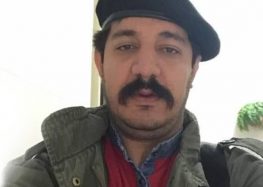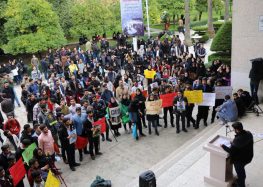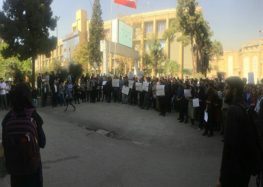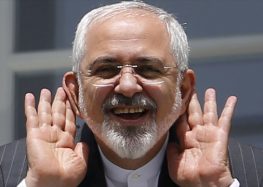Judge Accuses Eight Detained Students of Cooperation with Terrorist Organization Mojahedin-e Khalgh
Campaign believes false confessions were extracted under torture
 (29 April 2009) The Deputy of the Security Prosecution Court, Judge Haddad, announced in a 28 April 2009 interview with the Iranian Student News Agency (ISNA) that eight detained students have been charged with cooperating with the Mojahedin-e Khalgh (MEK), which is considered to be a terrorist group by Iran and numerous Western governments. The eight students, all from Amir Kabir University, include Majid Tavakoli, Hossein Torkashvand, Esmael Salmanpour and Koursh Daneshyar, who were detained on 5 February, and Ahmad Ghasaban, Nariman Mostafavi, Mehdi Mashayekhi, and Abbas Hakimzadeh who were detained on 24 February.
(29 April 2009) The Deputy of the Security Prosecution Court, Judge Haddad, announced in a 28 April 2009 interview with the Iranian Student News Agency (ISNA) that eight detained students have been charged with cooperating with the Mojahedin-e Khalgh (MEK), which is considered to be a terrorist group by Iran and numerous Western governments. The eight students, all from Amir Kabir University, include Majid Tavakoli, Hossein Torkashvand, Esmael Salmanpour and Koursh Daneshyar, who were detained on 5 February, and Ahmad Ghasaban, Nariman Mostafavi, Mehdi Mashayekhi, and Abbas Hakimzadeh who were detained on 24 February.
Judge Haddad said the charges were based on confessions, “which helped us extract new information,” indicating the students were planning actions in connection with the upcoming Iranian presidential elections on 12 June 2009. Haddad added that the arrests have “ended the student radical movement.”
The detained students have been held in incommunicado detention and the International Campaign for Human Rights in Iran believes that the new charges against them are based on false confessions extracted under torture in the past ten days. The Campaign previously expressed concern that the detained students are at risk of torture to extract false confessions.
“The form and substance of these remarks suggest that no distinction exists between domestic intelligence agencies and the courts, ” said Hadi Ghaemi, spokesperson for the International Campaign for Human Rights in Iran. “The judge is showing a total disregard for the obligations of independent justice, and in effect revealing to the media that the students have no chance of a fair trial, and are instead being smeared with bogus, politically-motivated charges on the basis of alleged confessions, charges that will ruin their careers and could end their lives.”
Haddad also alleged that the students would have full access to legal counsel, and that there would be “no problem” to be visited by their families. He also stated: “We don’t have any problem with the students’ activities.”
According to information received by the Campaign, the students were arrested without charge. They have been held in solitary confinement, without access to their families or any lawyers.
Haddad’s public remarks have been forcefully refuted by student leaders with whom the Campaign has interviewed. According to Milad Asadi, a member of the Central Committee of the Student Union to Foster Unity (Dafter Tahkim Vahdat), “Everything that Judge Haddad claimed in his interview was completely false. There is absolutely no contact or relationship directly or indirectly with Mojahedin. Our concerns are students’ collective rights issues, our right to study, our right to free expression, the freedom of association and assembly, which all the students all around the world are enjoying. It is a new accusation to eliminate student activists. They are not able to accuse the students to spying because the students have no relationship with the high level authorities. So, they fabricated this new accusation recently. We always condemned any terrorism actions by any groups including Mojahedin.”
The International Campaign for Human Rights in Iran is appealing to the Judiciary to investigate the arrest, detention, and interrogation of the eight students in order to safeguard their human rights and the integrity of the judicial system.






